Seven questions for Game 7: Warriors, Thunder prepare for epic showdown

Your teams on the go or at home. Personalize SI with our new App. Install on iOS or Android.
OAKLAND, Calif. — Stephen Curry raised seven fingers as he departed the Chesapeake Energy Arena on Sunday, a celebratory tribute to the Warriors’ final step in digging out of a 3-1 deficit against the Thunder in the Western Conference finals. After a thrilling Game 6 that saw record-setting shooting from Klay Thompson and mystifying late-game mistakes by Kevin Durant and Russell Westbrook, the defending champions return home to Oracle needing just one win to secure a rematch with the Cavaliers in the Finals.
“Game 5 was a battle, this was a war,” Draymond Green said after Game 6 was in the books. So what does that make Game 7? A nuclear war? An intergalactic clash? Hunger Games: Oakland?
This has been an epic West finals, even without its final chapter written. There have, already, been plenty of storylines that will stand the test of time: Curry’s Game 2 burst, Green’s kick, Russell Westbrook’s Game 4 triple double and Game 5 laughter at Curry’s defense, Thompson’s insane shooting performance, the Thunder’s Game 6 meltdown, and the coaching chess match between Steve Kerr and Billy Donovan. But everyone wants to know how this one ends, Namely, will LeBron James get a rematch with Curry, Green and Thompson or a rematch with Westbrook and Durant?
• Open Floor Podcast: Previewing Game 7 of Warriors-Thunder showdown
Here’s seven key questions to ponder as the countdown to Monday night’s decisive Game 7 ticks down.
• MORE NBA: How Klay Thompson's historic night saved Warriors' season
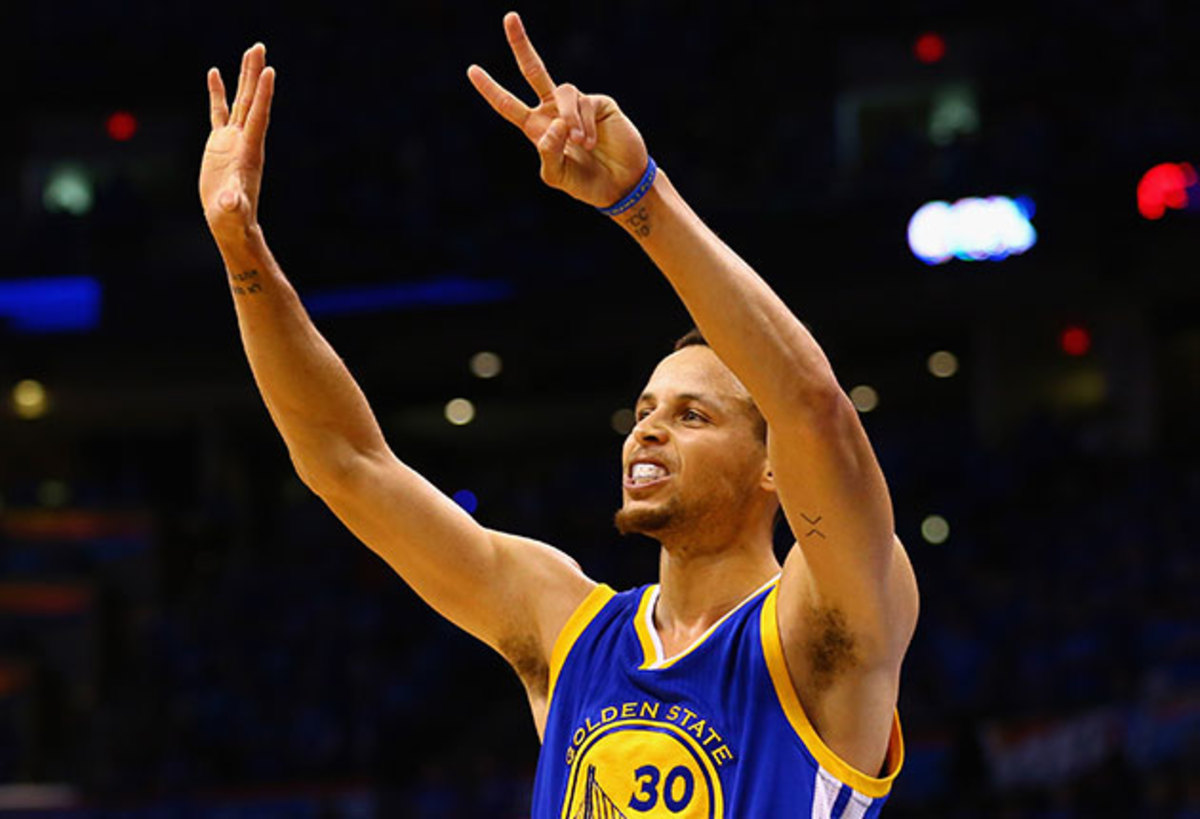
1. What does history suggest will happen?
There are a million factoids to consider when it comes to sizing up where the series stands now. Here are a few worth considering…
• Only nine of the 232 teams that have trailed a series 3-1, as the Warriors did, have gone on to win in seven games.
• Teams that have led 3-1 in a series, as the Thunder did, are 7-7 (.500) when they play Game 7 on the road.
• Home teams are 100-24 (.806) overall in Game 7s dating back to 1948. During the three-point era, home teams are 65-16 (.802) in Game 7s.
• The Warriors are 17-3 (.850) at home during the playoffs under Kerr. Golden State is also 47-3 (.940) at home during the 2015-16 season and 2016 playoffs combined, although one of those three losses came to Oklahoma City in Game 1.
• The Thunder are 5-3 on the road during the 2016 playoffs under Donovan, with a win over the Warriors, two wins over the Spurs, and two wins over the Mavericks.
Put all of those together, and the general assumptions and conventional wisdom that have floated around since Sunday are pretty accurately reflected in the numbers. Although Golden State would be bucking history if it completes its comeback from the 3-1 deficit, it has a significant home-court advantage and that’s something that’s long proven to be beneficial in a do-or-die game. Oklahoma City, however, has a puncher’s chance: Stabilizing in Game 7 after two straight losses has happened before, and the Thunder enter Monday’s game with the confidence that comes with a strong postseason road record to date.
2. Have either of these teams been here before?
No, not really. The Warriors haven’t played a Game 7 under Kerr and they had never even faced elimination under their second-year coach until Game 5 of this series. Golden State’s core players have played in just one Game 7 together: a first-round loss to the Clippers in 2014 that led to the dismissal of then-coach Mark Jackson.
The Thunder have only played two Game 7s since moving to Oklahoma City in 2008. Both of those games came against the Grizzlies (during a 2011 second-round series and a 2014 first-round series), and both were wins.
Neither the Warriors’ loss or the Thunder’s victories are truly comparable to what’s to come on Monday, as the stakes—one win away from the Finals—are significantly higher. At the same time, both teams have fared well in closeout games: The Thunder are 8-4 during the Durant/Westbrook era and the Warriors are 6-1 during the Kerr era in such contests.
• MORE NBA: Warriors force Game 7 after OKC's nightmares return
What’s really interesting is how rarely the West finals goes the distance. Indeed, Monday will mark the first Game 7 in the conference in 14 years. Since the turn of the century, there have only been two West finals that have needed seven games: 2000 (Lakers over Blazers) and 2002 (Lakers over Kings). By contrast, the East finals has gone to a Game 7 four times in that time period: 2001 (Sixers over Bucks), 2005 (Pistons over Heat), 2012 (Heat over Celtics) and 2013 (Heat over Pacers).
The easiest way to summarize the state of affairs: Golden State and Oklahoma City haven’t been in this precise position before, but both teams have plenty of recent experience and success to draw upon.
Gallery: The NBA's greatest Game 7s over the years
Greatest Game 7s in NBA History
2016 NBA Finals
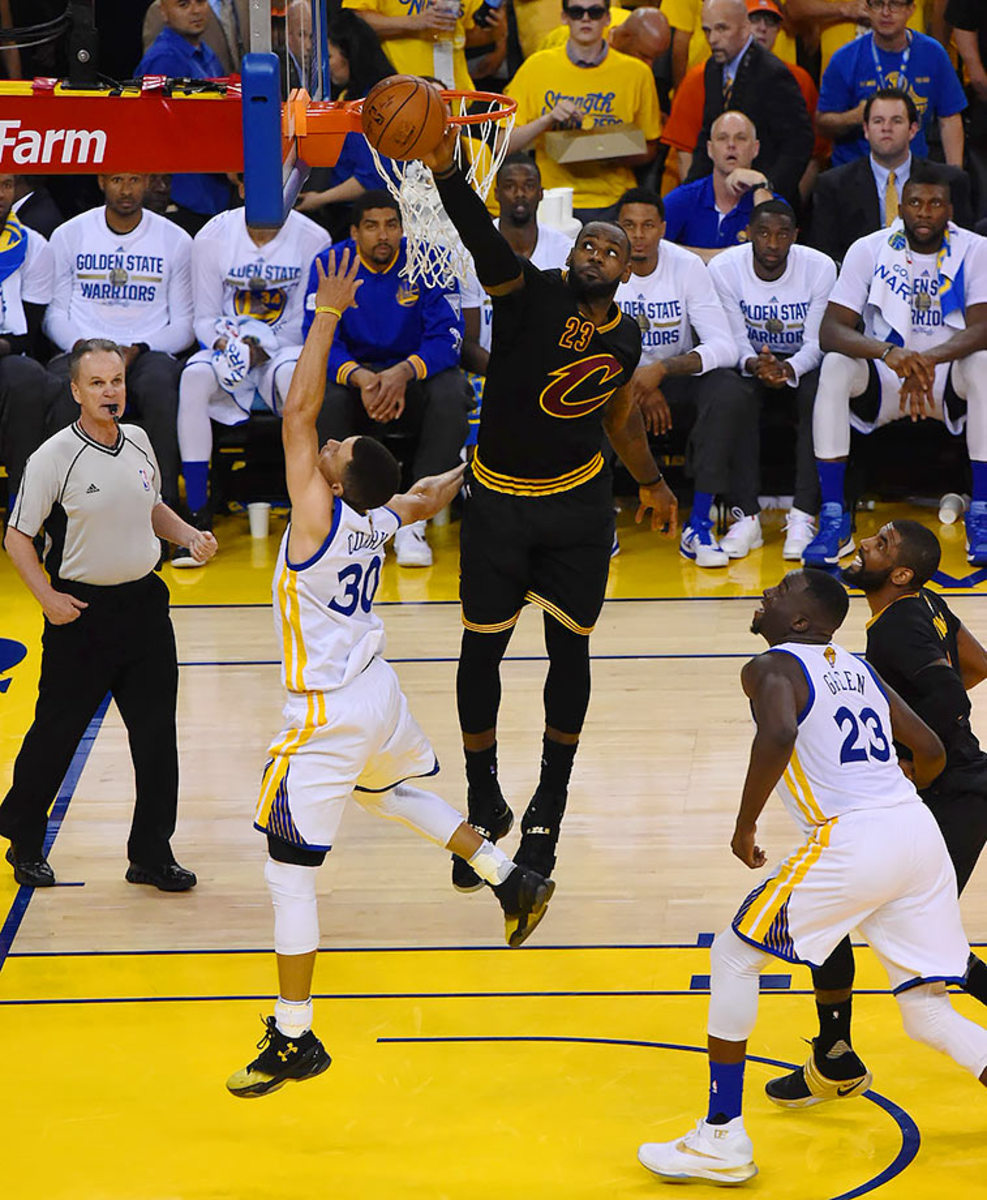
In a testy series of blowouts — and a few blowups — the winner-take-all Game 7 provided the thrilling finale with LeBron James as the finals MVP disarming two-time reigning MVP Stephen Curry and his record-setting Warriors. Playing his sixth straight finals, James almost single-handedly carried Cleveland back into this series and finished with 27 points, 11 assists and 11 rebounds as the Cavs defeated the Warriors 93-89 to capture their first championship in franchise history and gave their city its first major sports winner since the Browns won the NFL title in 1964. He also had three blocked shots and two steals, overcoming five turnovers.
2016 Western Conference Finals
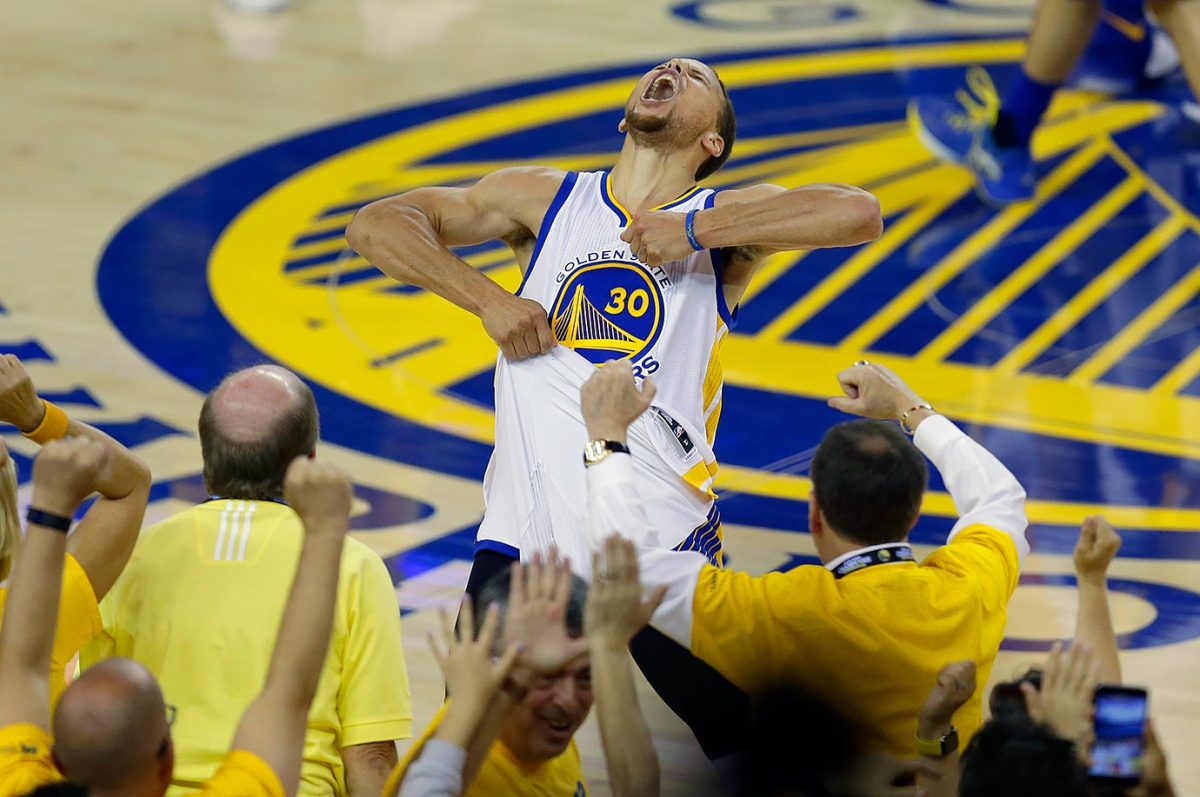
The Warriors, who fell behind 35-22 in Game 7 against the Thunder, became the 10th team to rally from a 3-1 deficit and win a postseason series after beating Oklahoma City 96-88. League MVP Stephen Curry scored 36 points with seven 3-pointers to finish with an NBA-record 32 in a seven-game series, and also had eight assists.
2015 Western Conference First Round
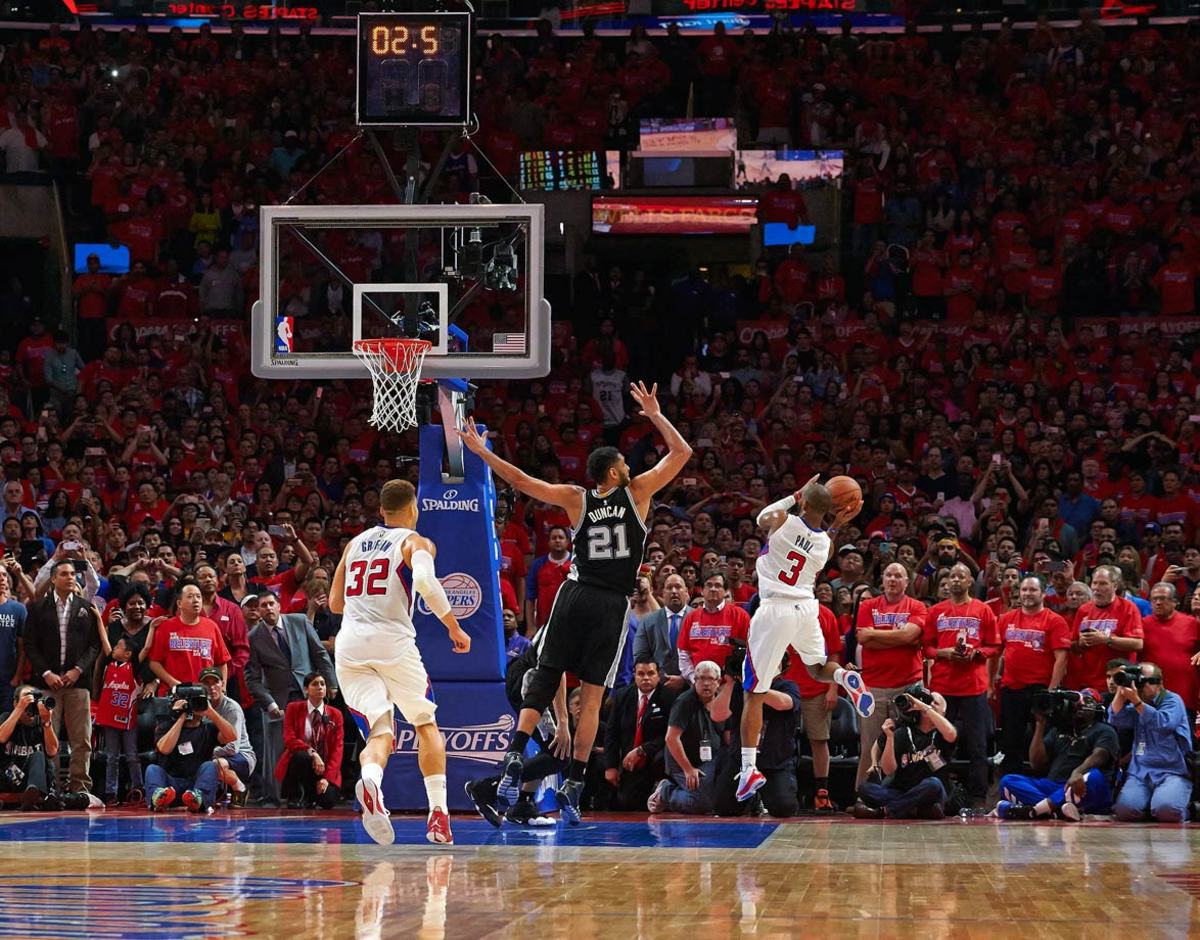
Clippers point guard Chris Paul delivered a driving bank shot over 6' 11" Tim Duncan to KO the defending champion Spurs 111-109 in Game 7 of their first-round playoff series. The teams traded the lead 31 time, and neither held an advantage of more than three points over the final 5:26. Paul, who strained his left hamstring in the first quarter and missed more than seven minutes to receive treatment, hobbled to a team-high 27 points—the last two on this improbable heave off his injured leg with one second left.
2013 NBA Finals
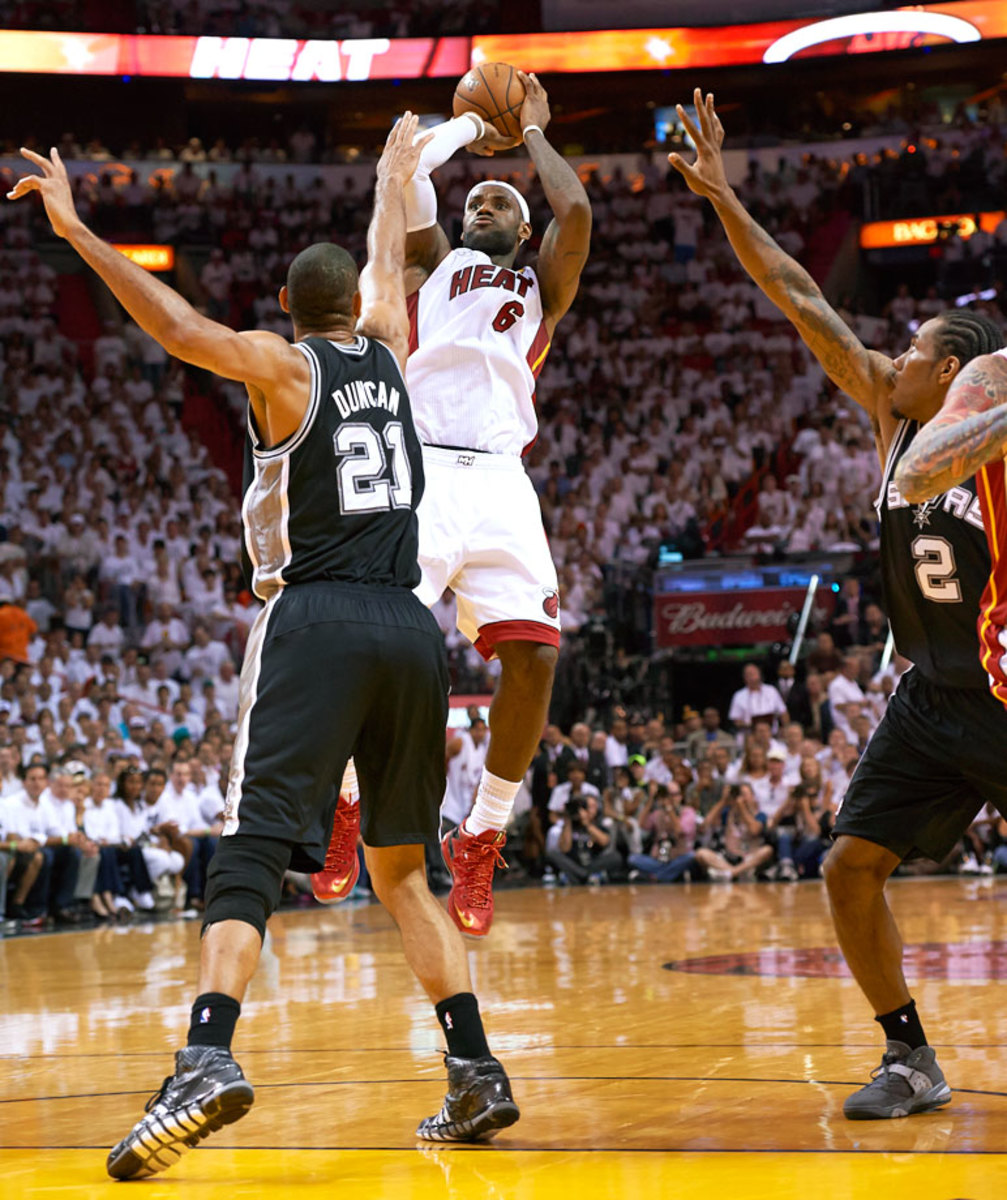
LeBron James scored 37 points, grabbed 12 rebounds and simply controlled everything down the stretch to win his second consecutive NBA title and second Finals MVP award. James made five three-pointers, defended Tony Parker when he had to, and did everything else that could be expected from the best player in the game in the Heat's 95-88 victory over the Spurs.
2010 NBA Finals
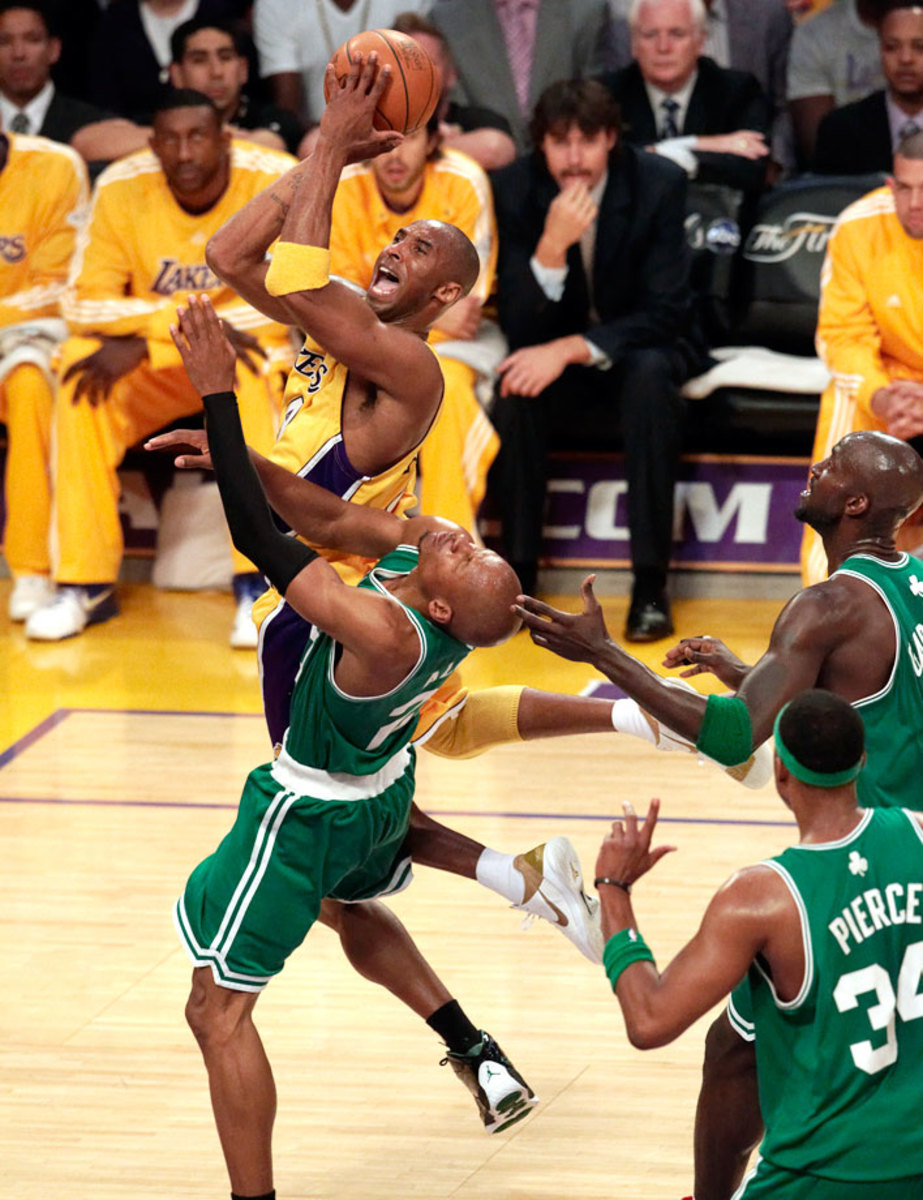
Injuries, fatigue and a poor night of shooting didn't stop Kobe Bryant from acquiring a second consecutive NBA championship and his fifth overall. Despite his unsightly 6-for-24 shooting, Bryant (23 points, 15 rebounds) led the Lakers to a gritty 83-79 Game 7 win over their storied rivals. The basketball certainly wasn't the best from either team -- the Lakers' shot 32.5 percent from the field and missed 12 free throws, while the Celtics committed 15 turnovers and were outrebounded, 53-40 -- but L.A. rallied from a 13-point second-half deficit for the title win. The Celtics entered the series having never lost a Game 7 in the Finals but left as just the seventh team in history to blow a 3-2 Finals lead after winning Game 5.
2008 Eastern Conference Semifinals
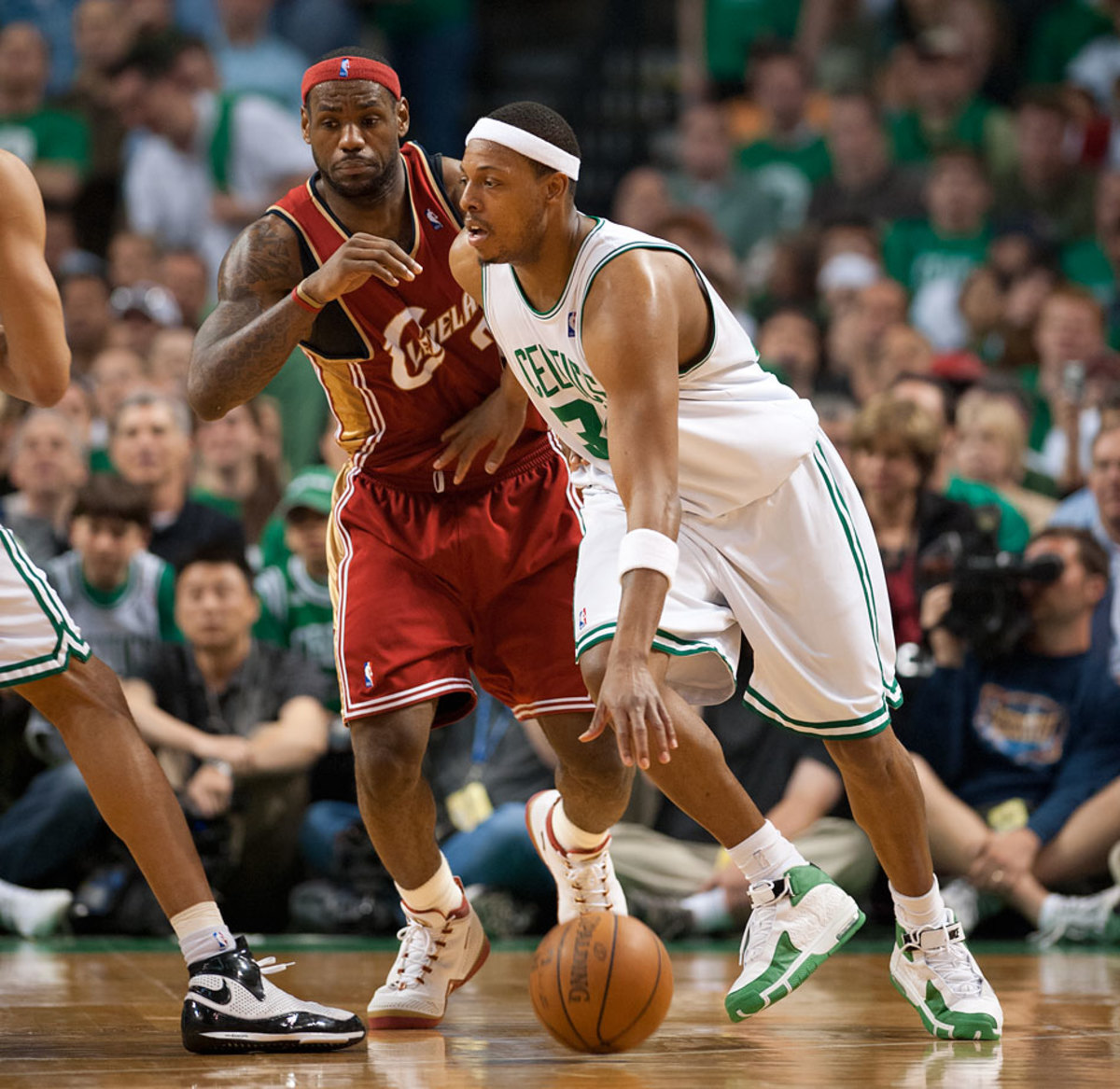
Paul Pierce (41 points) and LeBron James (45) went back and forth in a duel reminiscent of Larry Bird vs. Dominique Wilkins in Game 7 of the conference semifinals 20 years earlier. Pierce's Celtics prevailed 97-92 to wrap up a series in which the home team won every game. The Celtics went on to win the championship, while the loss spurred Cleveland to give LeBron more offensive help by acquiring Mo Williams in the offseason.
2002 Western Conference Finals
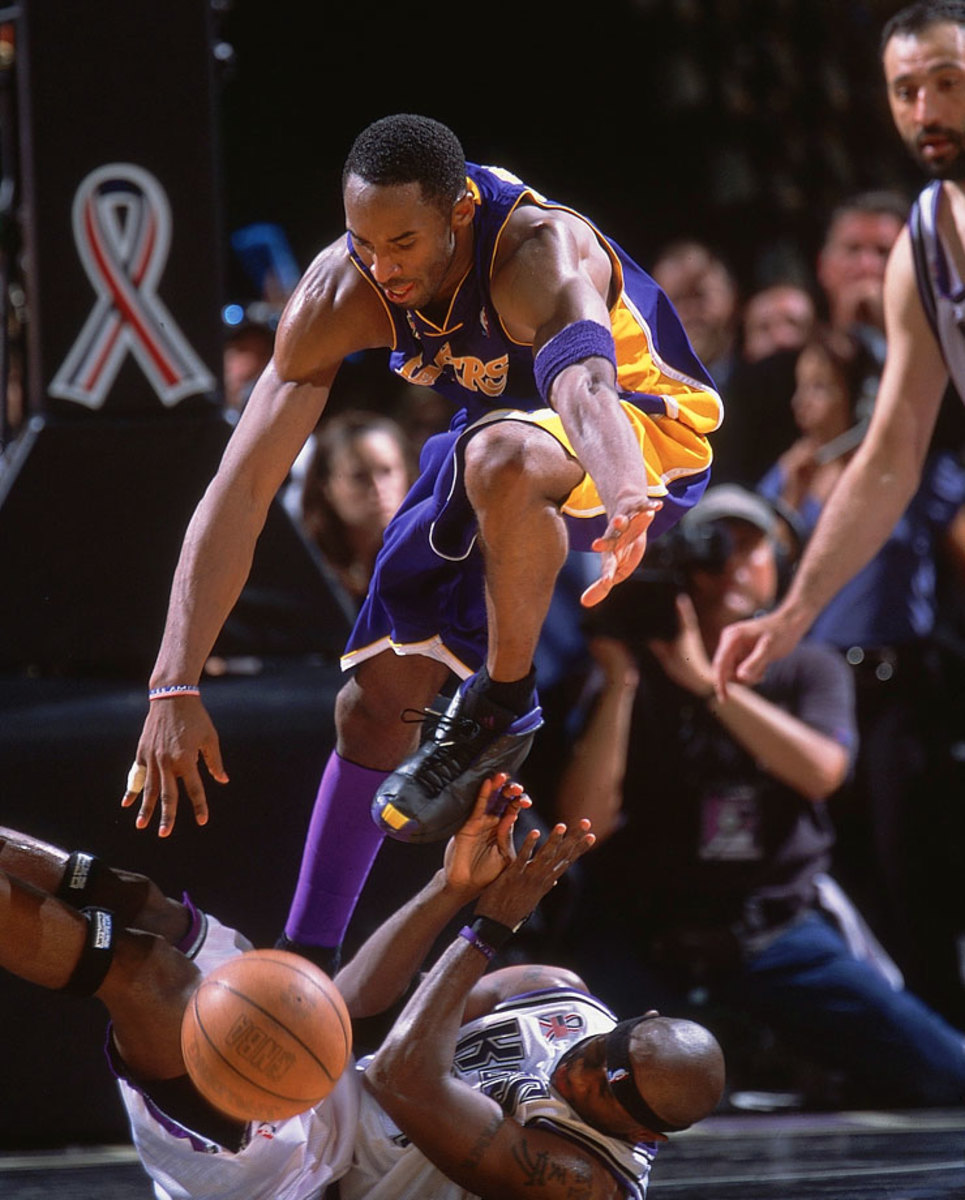
The Lakers joined the 1976 Suns (at Golden State) as the only road teams to win a Game 7 in the West finals. Kobe Bryant finished with 30 points in 52 minutes. The Kings missed 14 of 30 free throws and came up small in crunch time with the exception of Mike Bibby, who scored 14 of their last 18 points.
2000 Western Conference Finals
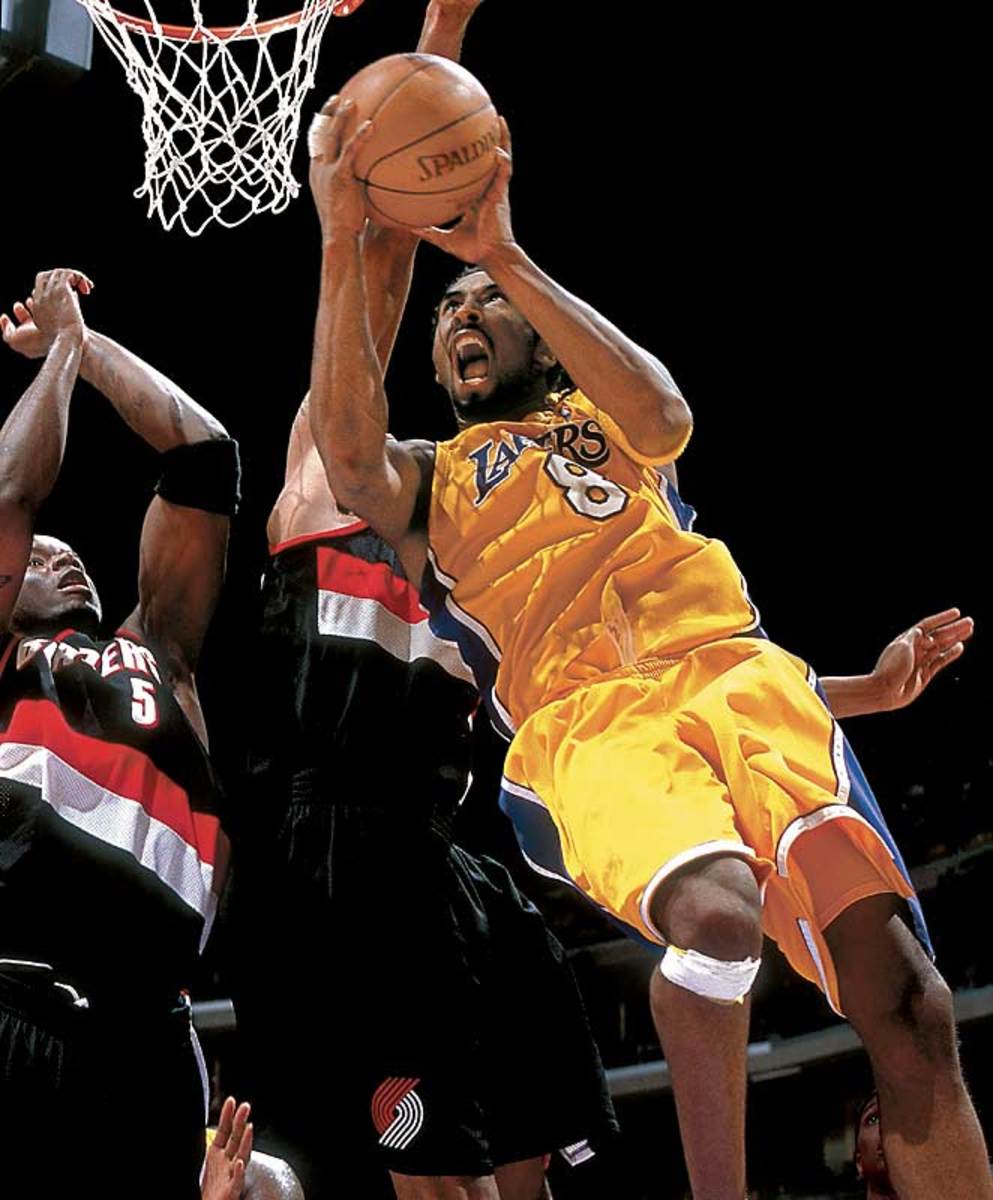
Shaquille O'Neal and Kobe Bryant led the Lakers back from a 15-point fourth-quarter deficit to topple the Blazers 89-84 in Los Angeles en route to their first NBA crown under coach Phil Jackson. "We realize we sort of made cowards of ourselves in the fourth quarter," Portland's Scottie Pippen said after the game.
1998 Eastern Conference Finals
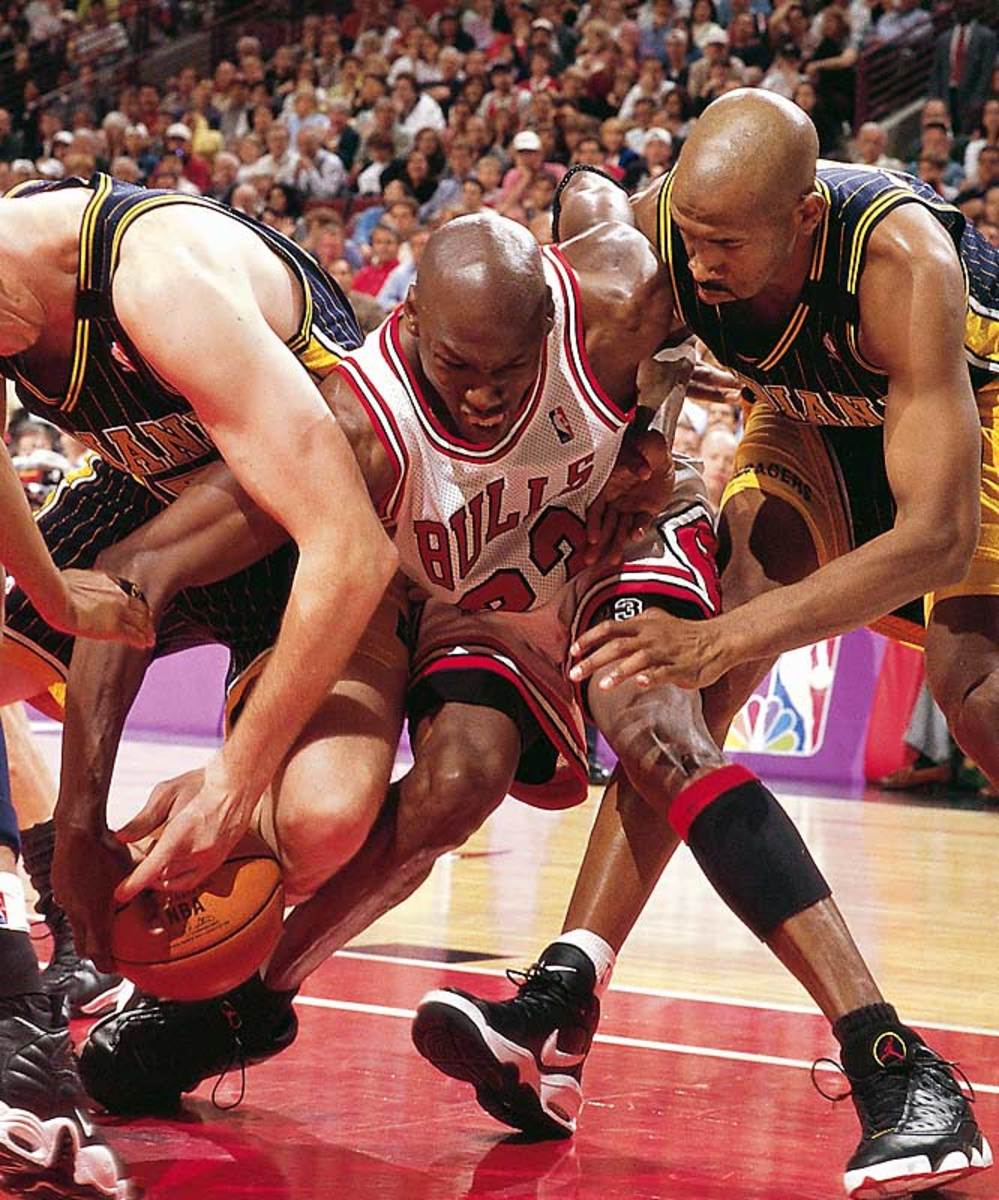
Trailing in the fourth quarter of their first Game 7 in six years, the Bulls overcame Indiana 88-83 behind Michael Jordan's 28 points. The Bulls went on to beat the Jazz in the NBA Finals to complete their second three-peat.
1995 Western Conference Semifinals
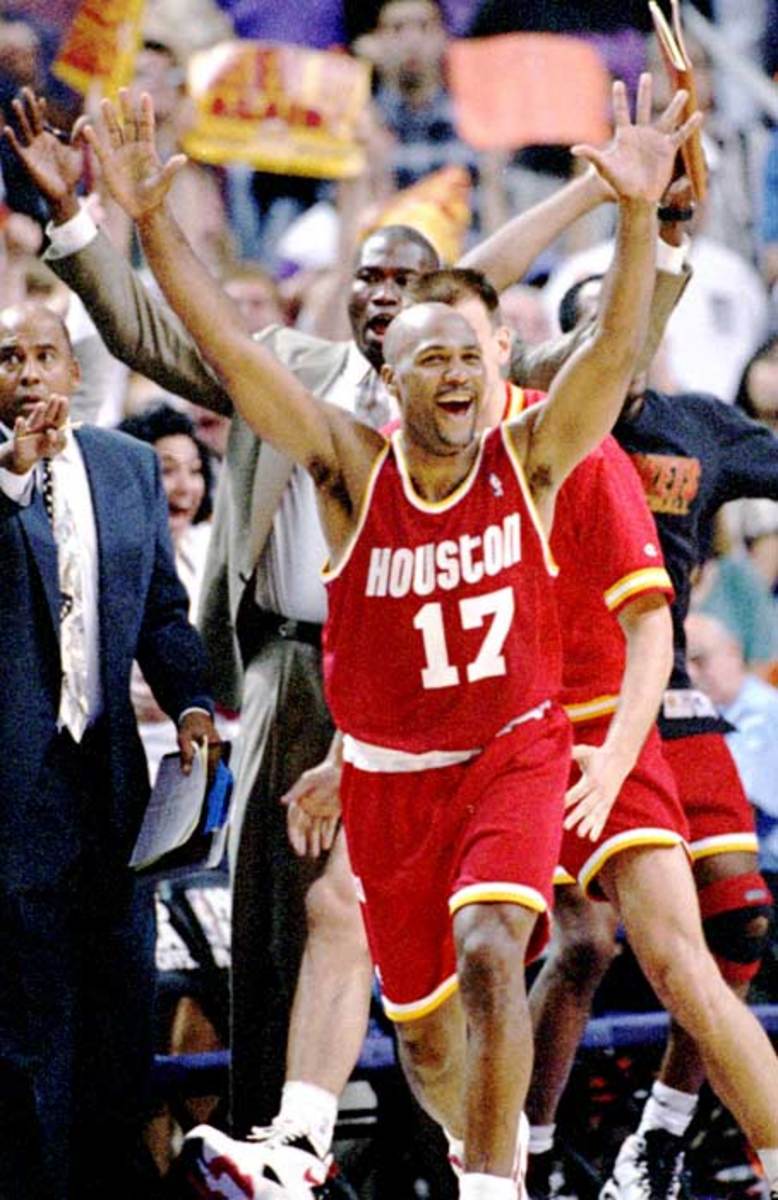
Guard Mario Elie nailed a go-ahead three-pointer from the corner with 7.1 seconds left as the Rockets won 115-114 at Phoenix, completing their comeback from a 3-1 series deficit en route to claiming a second straight NBA title. Kevin Johnson scored 46 points for the Suns.
1990 Western Conference Semifinals
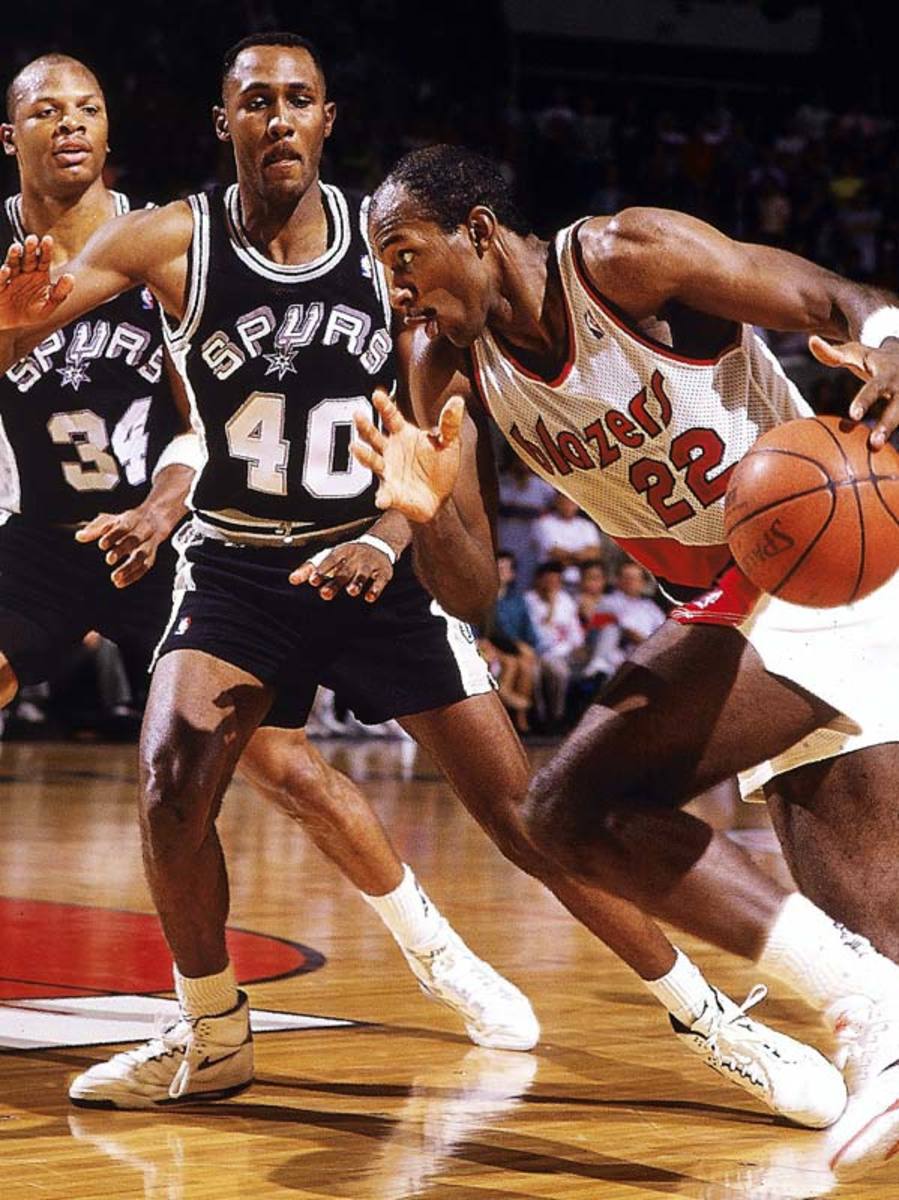
While Blazers center Kevin Duckworth provided an emotional lift by playing for the first time in the series after missing the previous six games with a broken hand, it was Clyde Drexler's five free throws in the final 26.2 seconds of overtime that clinched Portland's 108-105 win. The Spurs had the ball with the game tied 103-103 and about 30 seconds left, but Rod Strickland threw a no-look pass to no one in particular, and then he committed a breakaway foul on Drexler that led to two free throws and possession for Portland.
1988 NBA Finals
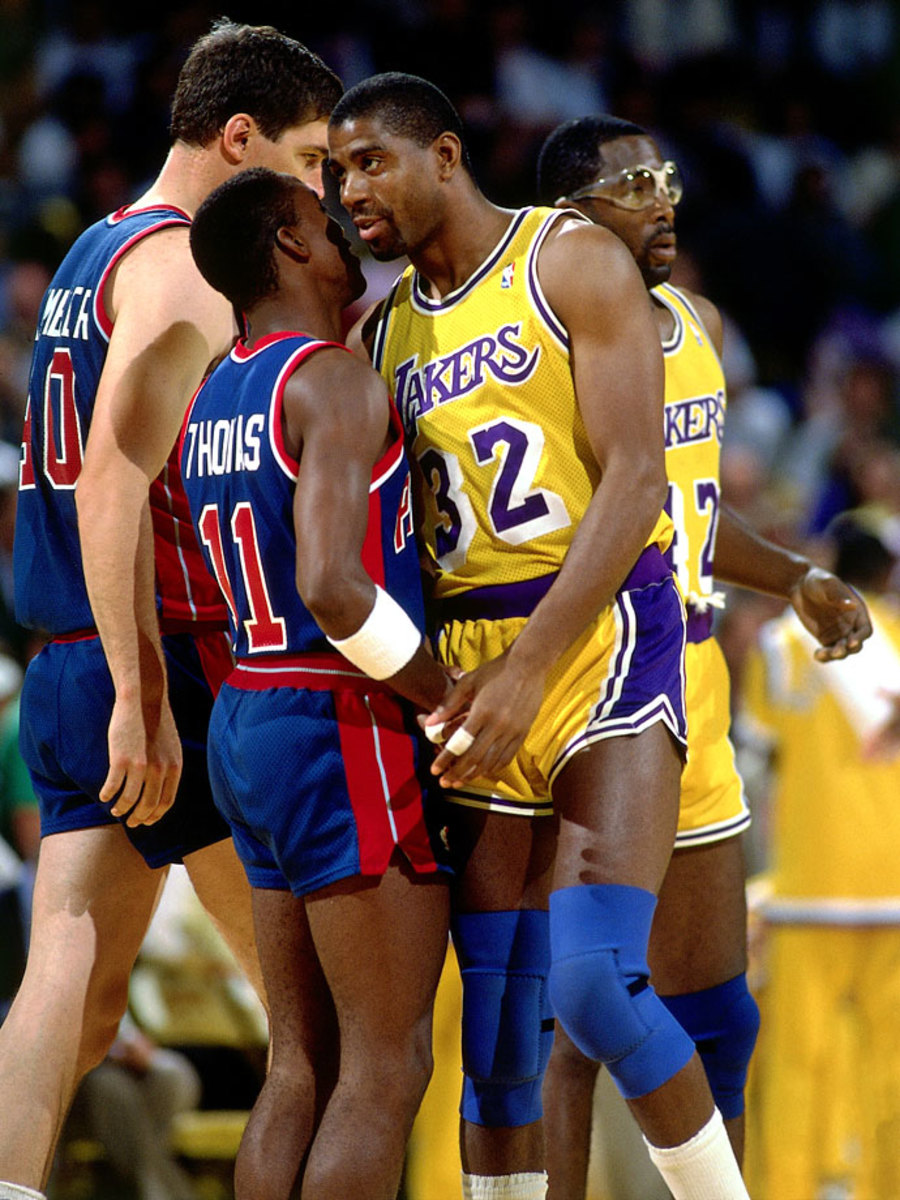
Facing an upstart Detroit team in their third Game 7 of the playoffs, the Lakers defended their NBA championship with a 108-105 victory in Los Angeles. Finals MVP James Worthy led the way with 36 points and 16 rebounds, while the Pistons were weakened by Isiah Thomas' lingering ankle injury.
1988 Eastern Conference Semifinals
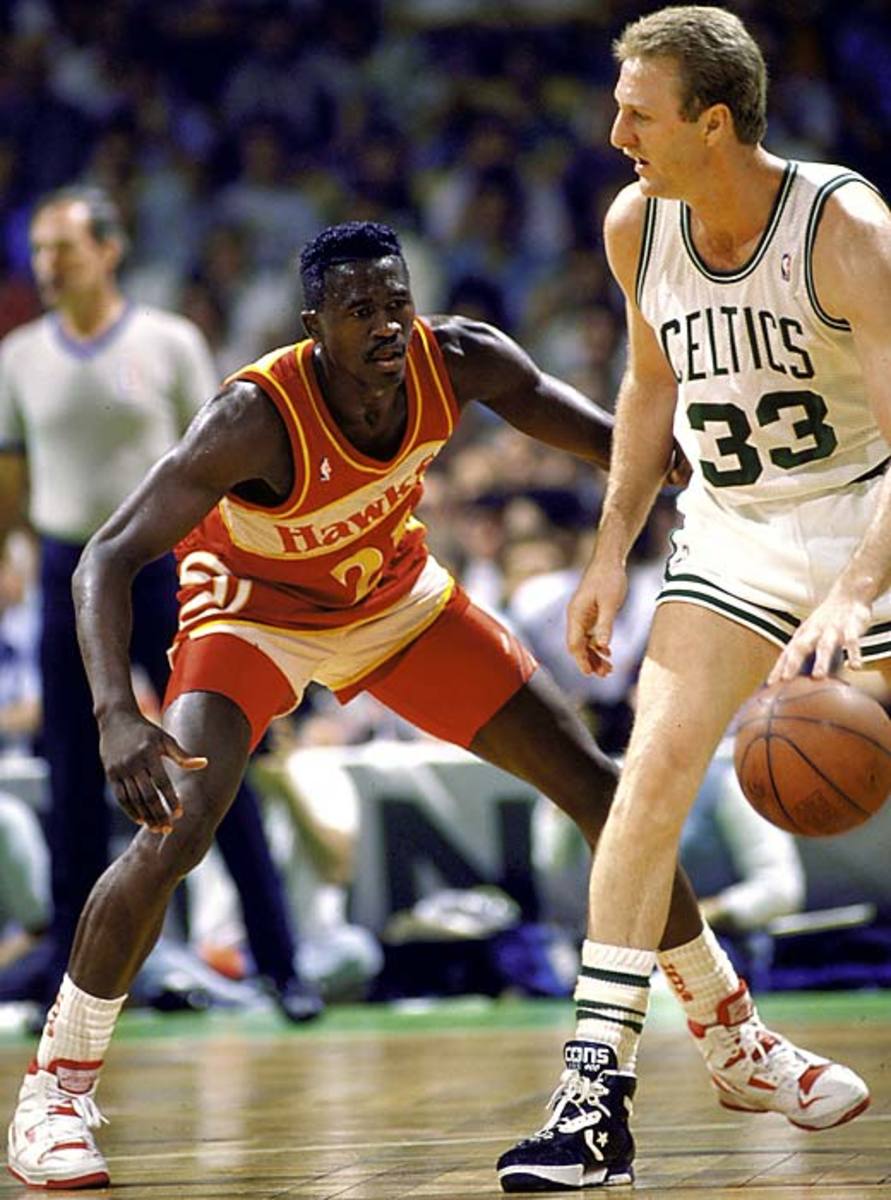
Dominique Wilkins, Atlanta's Human Highlight Film, exploded for 47 points in a stirring showdown with Larry Bird. But Bird saved his best for last, scoring 20 of his 34 points in the fourth quarter to help the Celtics escape 118-116.
1987 Eastern Conference Semifinals
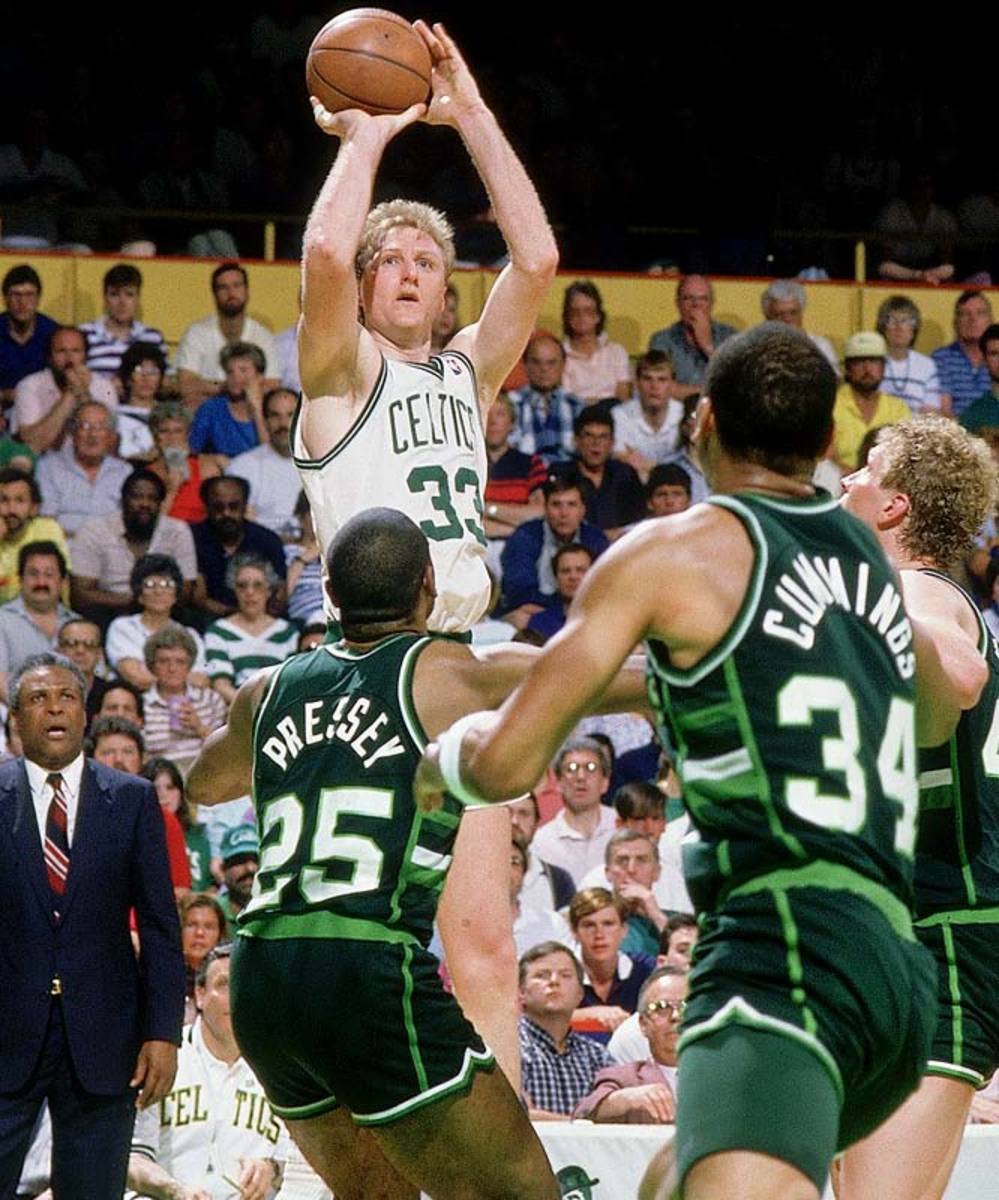
The defending champion Celtics took a 3-1 series lead over Milwaukee before coach Don Nelson's Bucks stormed back to knot the series. The Bucks even led for most of Game 7, but their late cold spell, combined with Larry Bird's 13 fourth-quarter points, gave the Celtics a 119-113 victory.
1986 Eastern Conference Semifinals
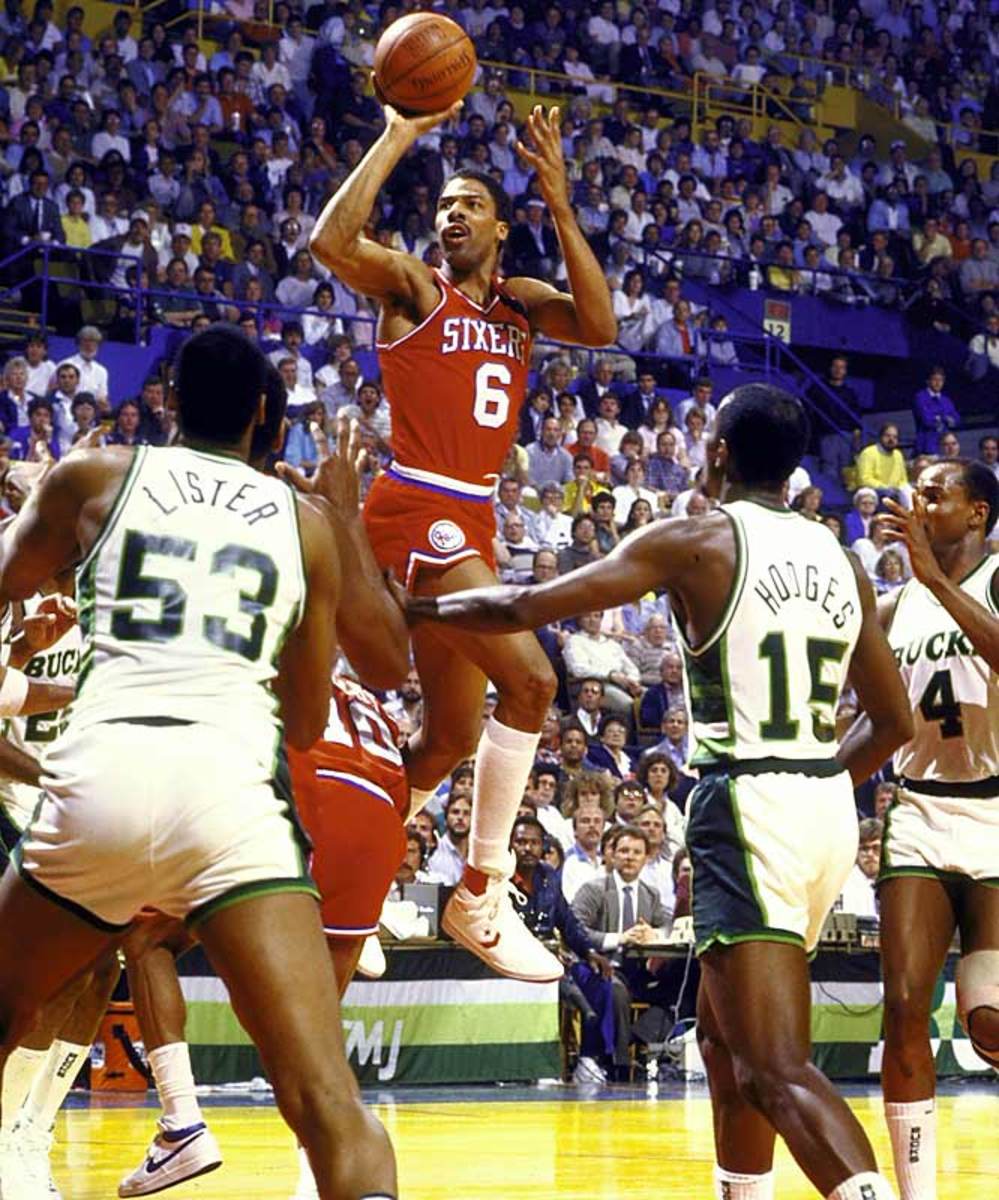
Milwaukee gained a measure of revenge after losing to Philadelphia in the playoffs in four of the previous five seasons. This time the Sidney Moncrief- and Terry Cummings-led Bucks survived 113-112 after Julius Erving missed an open 15-footer with two seconds left.
1984 NBA Finals
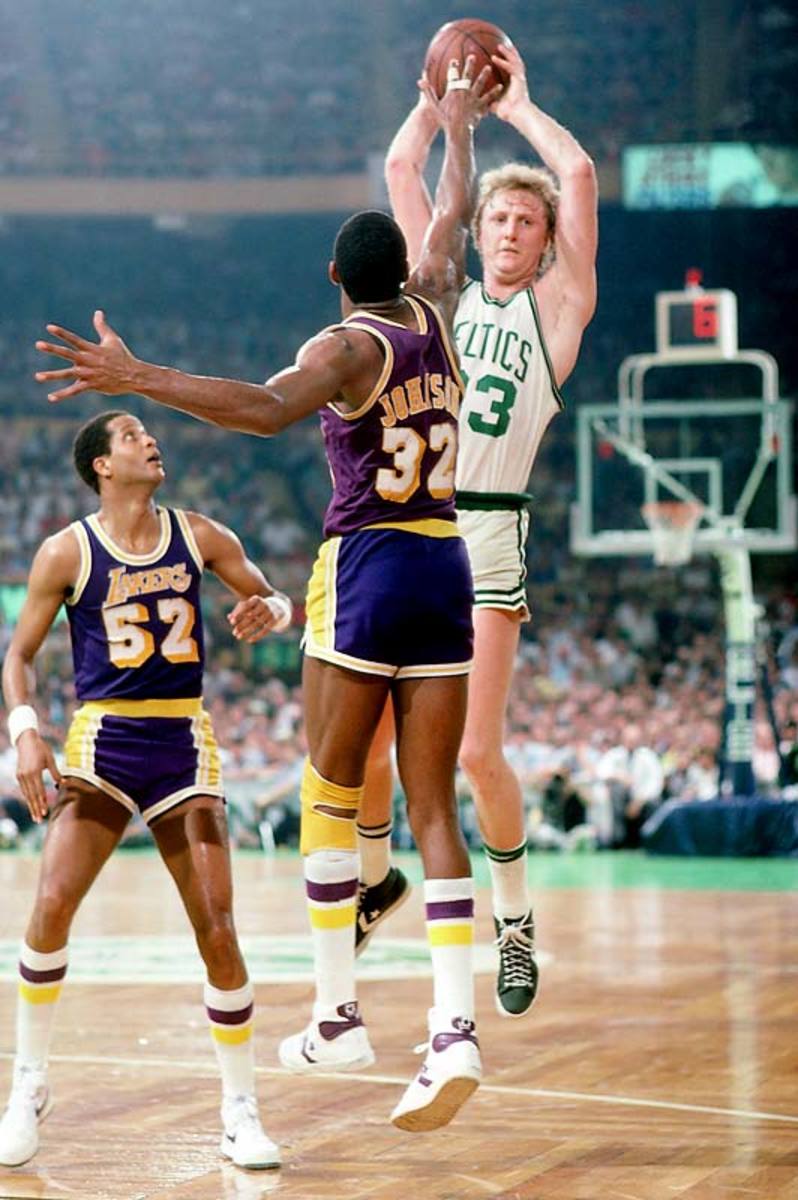
In the first Finals duel between Magic Johnson and Larry Bird (pictured earlier in the series), the Celtics survived the Lakers' late comeback to win the decisive game 111-102. Cedric Maxwell scored 24 points for Boston and Finals MVP Bird added 20 points and 12 rebounds.
1981 Eastern Conference Finals
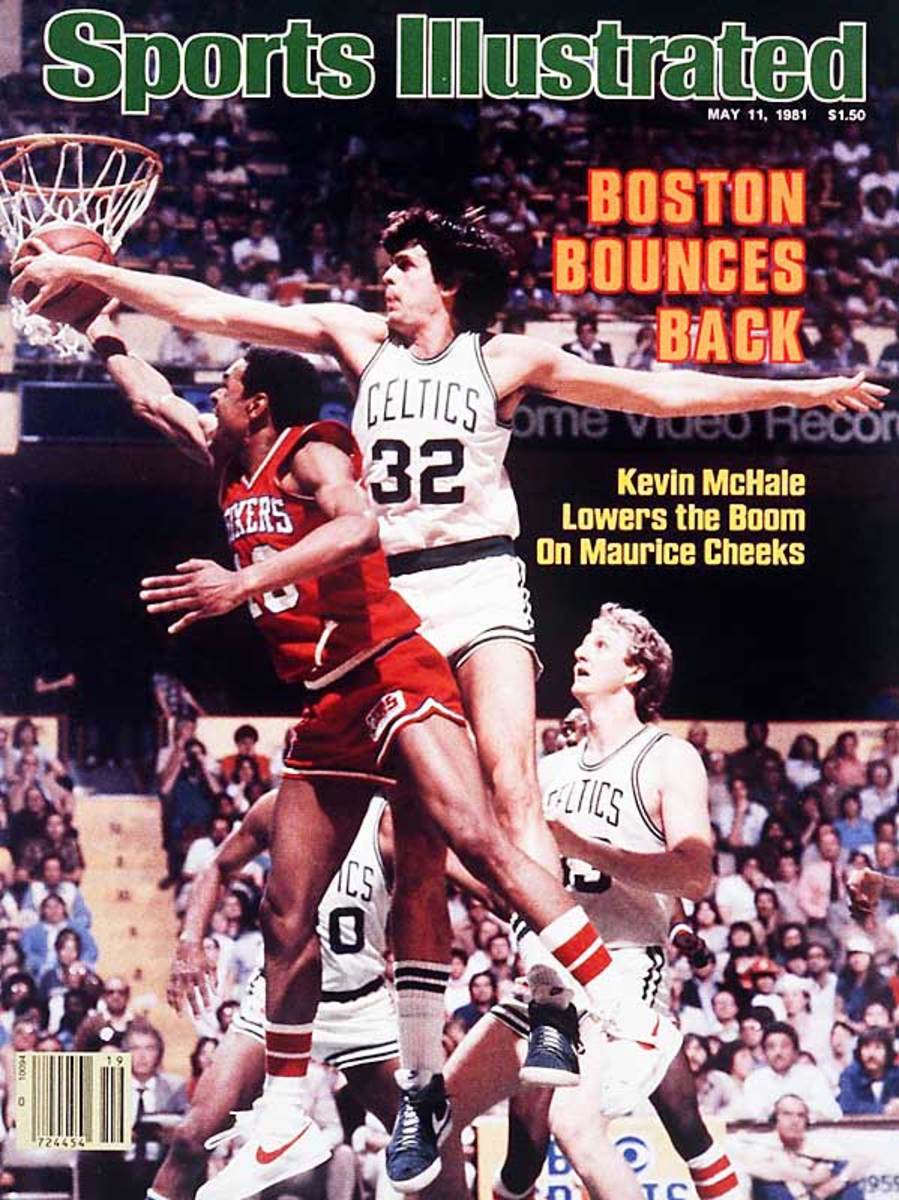
A tight series between two 62-win teams fittingly went down to the wire. Larry Bird hit a go-ahead bank shot in the final minute as the Celtics rallied from a six-point deficit in the final 4:30 to beat Philadelphia 91-90.
1970 NBA Finals
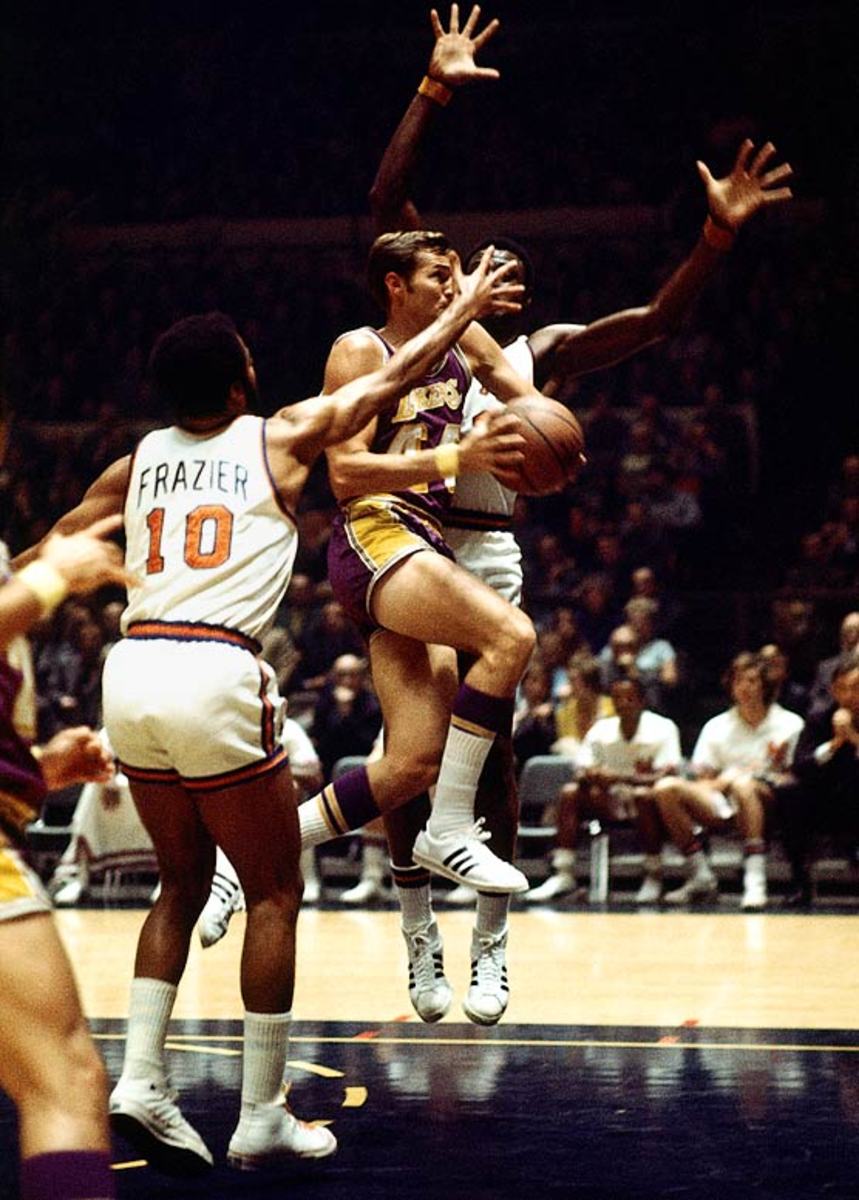
After hobbling off the court early in Game 5 with a torn thigh muscle, Willis Reed made a surprising and triumphant return moments before tip-off for the deciding game. Buoyed by his presence — and his scoring the first two baskets of the game — the Knicks won the title 113-99 behind Walt Frazier's 36 points and 19 assists.
1969 NBA Finals
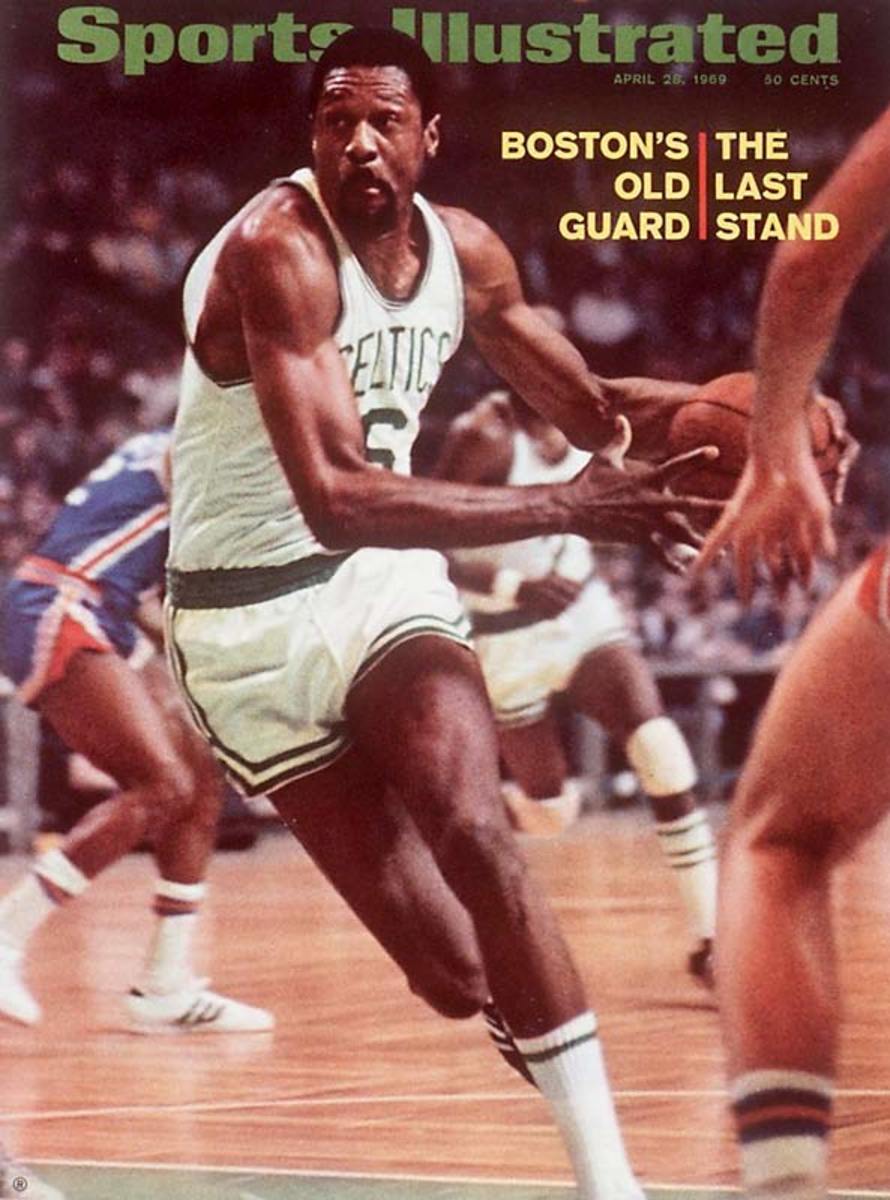
The Celtics nearly squandered a 17-point fourth-quarter lead but, thanks in part to Don Nelson's famous last-minute shot near the free-throw line, held on to win 108-106. Bill Russell, the NBA's greatest winner, retired as a player after collecting his 11th title.
1965 Eastern Division Finals
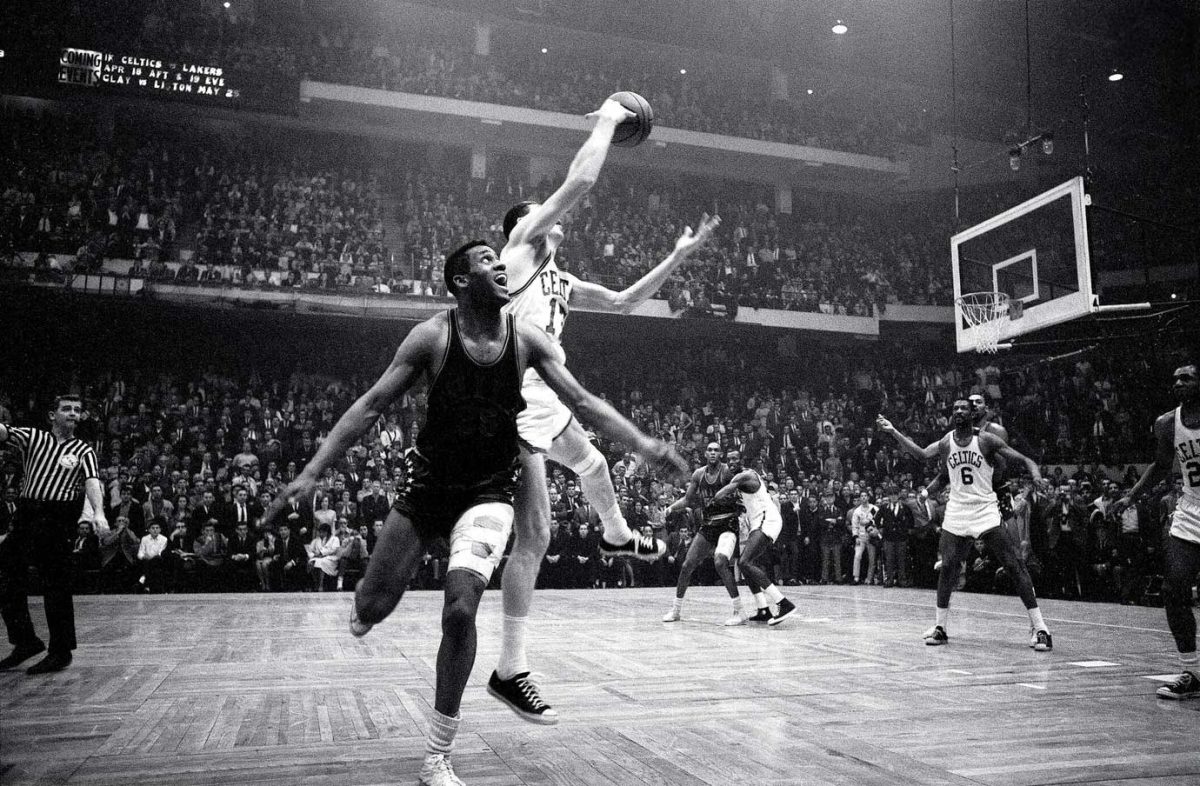
After Red Auerbach had lit his traditional victory cigar with his Celtics leading 110-103, the 76ers closed the gap to 110-109 and had possession with seconds left. But as Hal Greer tried to inbound to Chet Walker, Boston's John Havlicek stole the pass, leading longtime Celtics play-by-play man Johnny Most to famously cry, "Havlicek stole the ball! Havlicek stole the ball!"
1962 NBA Finals
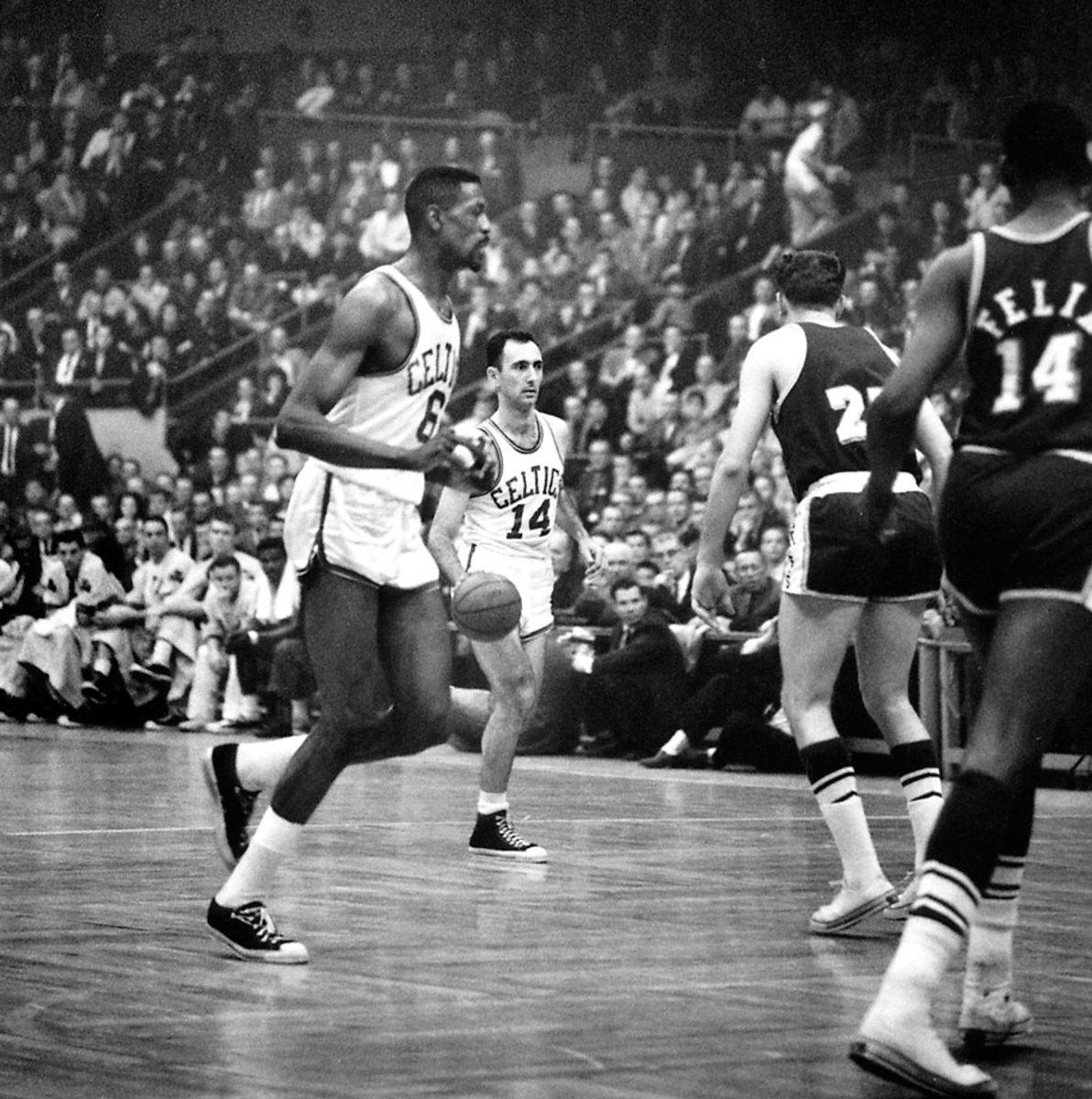
In the midst of winning eight consecutive championships, the Celtics escaped 110-107 in overtime. The Lakers had an opportunity to win it in regulation, but Frank Selvy missed a mid-range shot in the closing seconds.
1957 NBA Finals
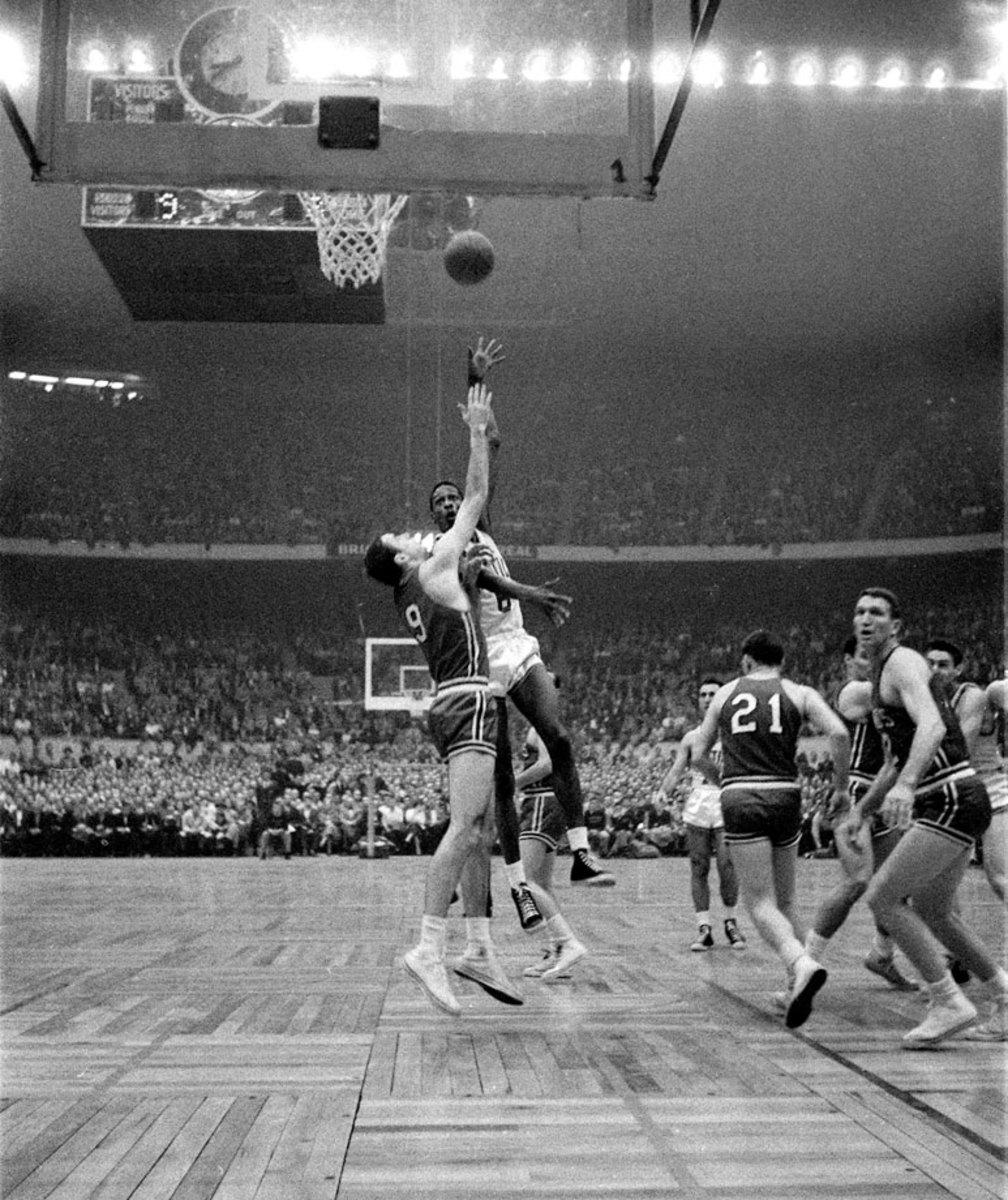
A rookie center named Bill Russell finished with 19 points and 32 rebounds, and fellow rookie Tom Heinsohn had 37 points and 23 rebounds as the Celtics overcame a combined 5-for-40 shooting performance from Bob Cousy and Bill Sharman to prevail 125-123 in double overtime. It was Boston's first NBA championship.
3. What's at stake for the Warriors?
If the Warriors win: They would complete an entertaining, wild, remarkable, frenzied comeback from a 3-1 hole. The series victory would be arguably the most impressive and dramatic of the Kerr era—comparing favorably with the 2015 Finals given Cleveland’s health at the time—and it would, at the very least, add yet another layer of intrigue to the team’s 73-win season. A victory would set up a rematch with James’s Cavaliers, it would put the Warriors in position to be the first team to repeat since James’s Heat (in 2012 and 2013), and it would keep alive the aura of invincibility that has surrounded both Kerr and Curry over the last two seasons.
• MORE NBA: Does Curry's defense really deserve Westbrook's laughter?
If the Warriors lose: It would be a truly stunning end to the best regular season in NBA history. Going out in the West finals, even if it took seven games and an incredibly worthy opponent, would place an asterisk on a phenomenal and memorable campaign. The Warriors would become the first 69+ win team not to win the title and their regular season point differential would be the second-highest of all time among non-champions.
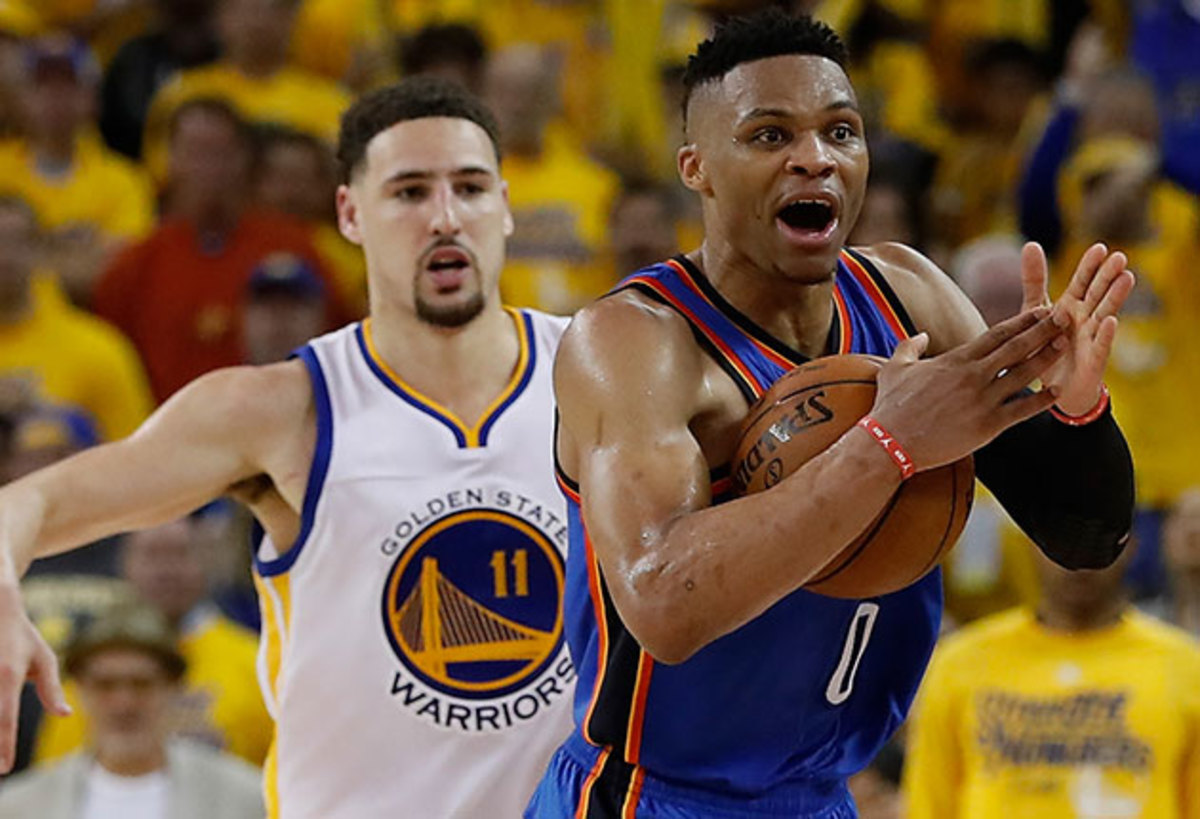
4. What's at stake for the Thunder?
If the Thunder win: Durant and Westbrook would be off the hook for their Game 6 struggles, Donovan would be hailed as a coaching and motivational genius, the Thunder would be in a strong position to capture Oklahoma City's first title, and the Thunder’s stars would get a rematch with James four years after losing to his Heat in five games. The victory, considering Durant’s impending free agency and the strength of the Warriors, would be viewed as the biggest win of the Oklahoma City era. Probably by a wide margin.
• MORE NBA: Thunder Road: How long until Durant and OKC reign?
If the Thunder lose: Hearts will be broken and hopes will be crushed. The Game 6 loss was so painful by the end that many Thunder fans averted their eyes and left the building before it was over. Losing three straight games while sitting on the brink of the Finals would bring comparisons to last year’s Clippers, who fell apart while needing just one win to reach their first conference finals, and it would lead to heightened criticism of Durant and Westbrook, given their late-game struggles. If James spent more than a week sulking inside after losing the 2011 Finals to the Mavericks, this type of “snatch defeat from the jaws of victory” loss might send Durant and Westbrook into hiding for months.
5. Are minutes becoming an issue?
Some observers wondered whether fatigue—either physical or mental—played a role in the Thunder’s Game 6 collapse. Given how hard both teams competed throughout that game, and how the stars for both teams logged 40+ minutes, it was a reasonable question to ask.
So far during the series, Durant and Westbrook have both played more minutes than any of the Warriors’ players. However, the gap isn’t as big as you might think: Durant has logged 19 total minutes more than Green, while Westbrook has played just 12 total minutes more than Curry. (Obviously, the blowout nature of many of the games in this series plays a role in these figures.)
• MORE NBA: Giant Killer: Draymond Green dares you to define him
When it comes to accumulation, the Thunder’s stars have logged more minutes that the Warriors’ stars during the 2016 playoffs because 1) they needed six games to finish off the Spurs and 2) because Curry missed so much time with ankle and knee injuries. Again, if Curry is put to the side, these aren’t gigantic margins. If Golden State is able to outlast and out-execute Oklahoma City down the stretch of Game 7, it will likely be because of the energy boost from having home-court and/or the momentum/psychological impact of retaking control of the series rather than a produce of a massive disparity in mileage or workload.
One key decision on this front: Will Kerr shift Andre Iguodala into the starting lineup? In Game 6, Iguodala moved into the second-half starting lineup in place of Harrison Barnes in order to align his minutes with Durant’s. That move paid huge dividends, as Iguodala had an excellent second-half defensively. Starting Iguodala, or at least increasing his minutes, is the most logical way for Golden State to push Durant physically and mentally.
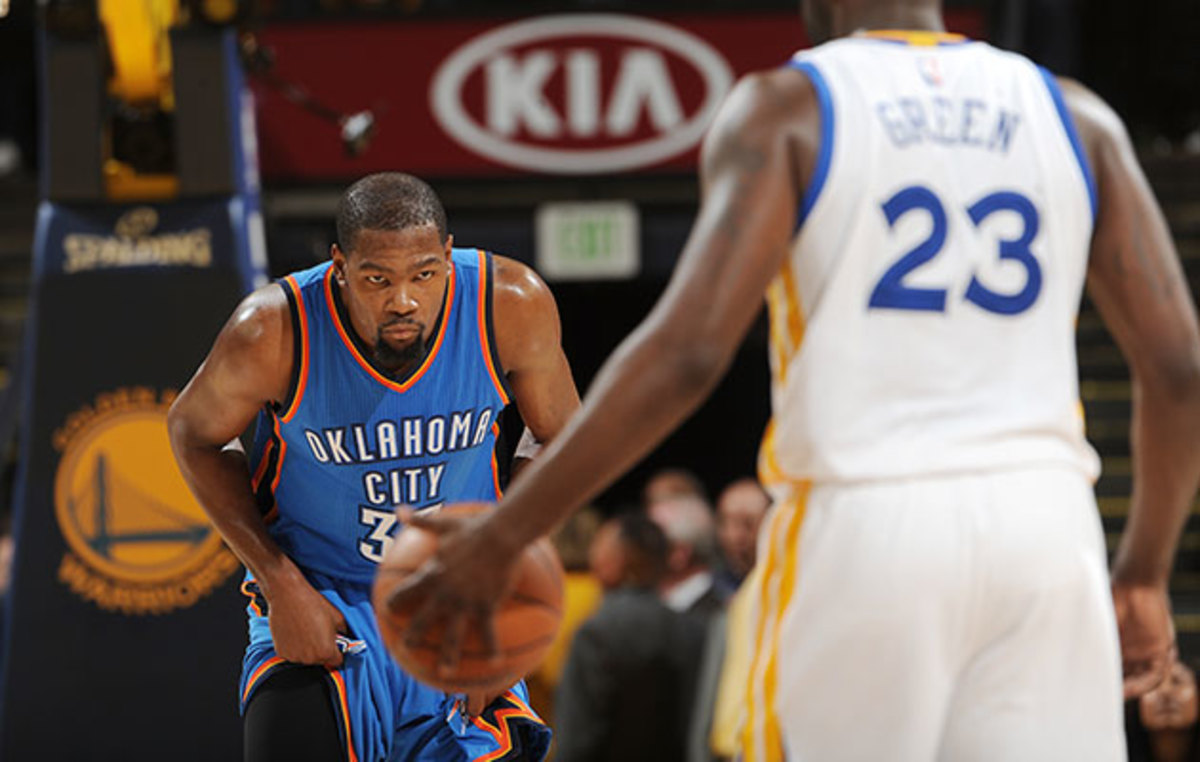
6. Have the Warriors gotten their three-point shooting on track?
Thanks in large part to Thompson’s heroics, the Warriors set an NBA postseason record by hitting 18 more three-pointers (21-3) than the Thunder in Game 6. This was the first real taste of Golden State’s destructive capability from the perimeter during this series, and it begs the question: Was the hot shooting an anomaly or have the Warriors figured out the Thunder’s defense and/or settled in after a somewhat rocky start to the series?
Here’s a game-by-game look at Golden State’s perimeter marksmanship from the 2016 postseason. Note that the true valleys, prior to the West finals, generally came in games when Curry was sidelined.
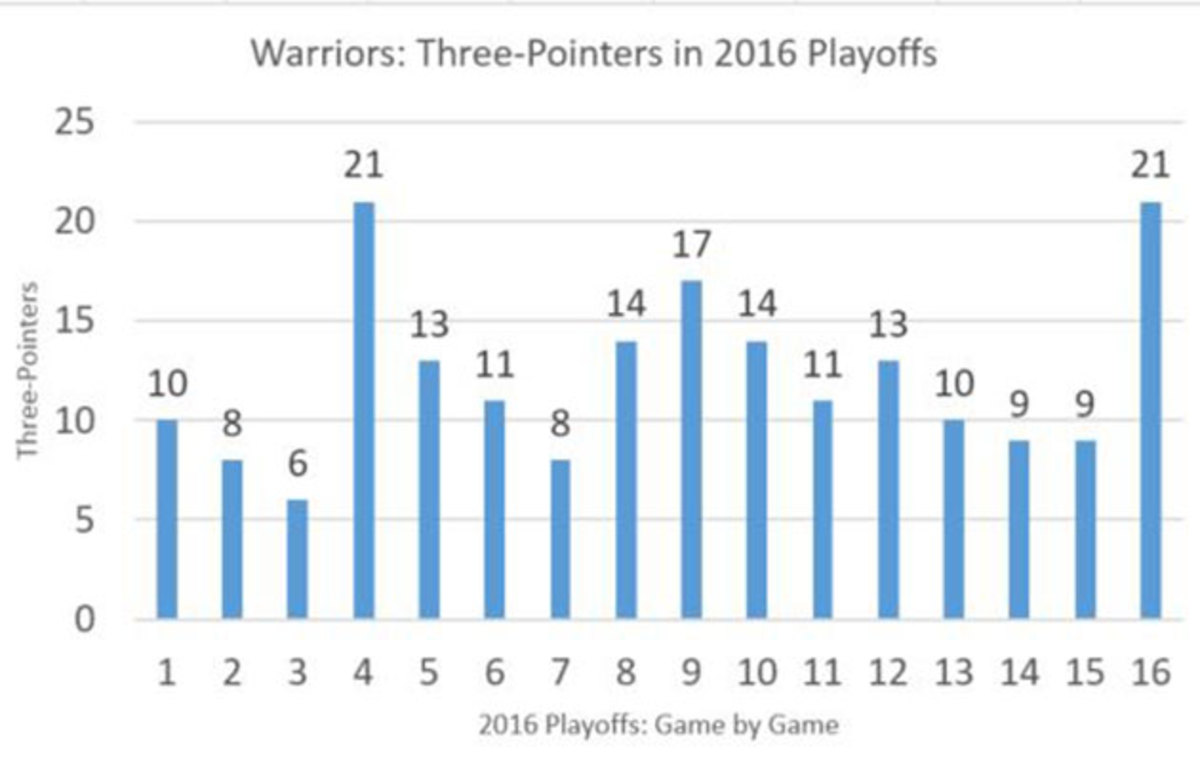
Through five games in this series, the Thunder had done well to keep Golden State in check. The easiest way for the Warriors to take Game 7 would be if the Thunder slip up when it comes to defending the three-point line and tracking both Curry and Thompson in transition situations.
7. Will the Thunder's supporting cast show up on the road?
There’s no doubt that Oklahoma City’s most complete performances in this series came at home during Games 3 and 4, when role players like Andre Roberson and Dion Waiters really found their groove. Durant and Westbrook almost always find a way to get their scoring numbers, but they’ll need help if they are going to steal a second game in Oracle.
So far in this series, the Thunder’s most important supporting cast members—Steven Adams, Serge Ibaka, Roberson, Waiters and Enes Kanter—have averaged a combined 53 PPG at home and 37 PPG on the road. During Game 5, those five players combined for just 28 points in a nine-point loss. Someone—preferably, multiple someones—will need to step up for Donovan.
